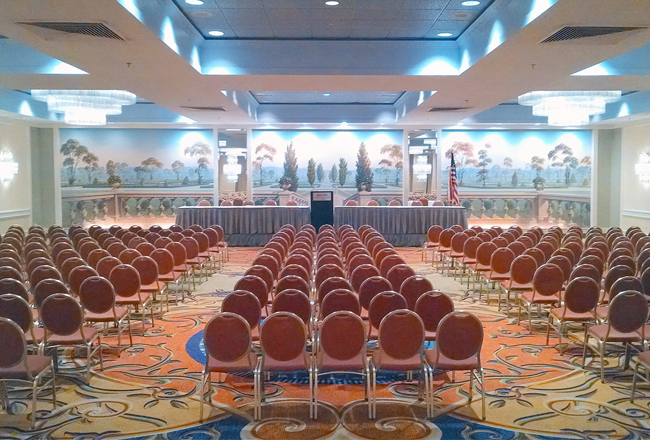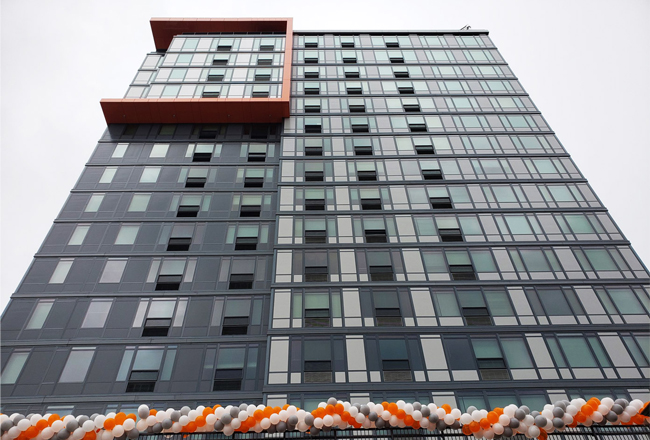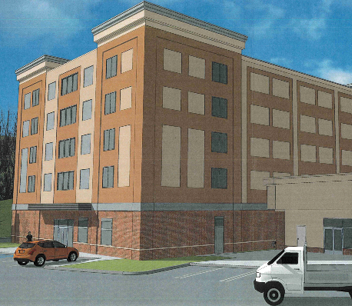The hotel industry today sent an impassioned plea to Congress to act immediately in granting more financial relief to its sector, lest the thousands of jobs lost and hundreds of hotels closed since the pandemic began continue to grow exponentially.
Chip Rogers, president and CEO of the American Hotel & Lodging Association (AHLA), said during a Zoom call this afternoon that the federal government”™s Paycheck Protection Program (PPP) had been a success, it was implemented with the expectation that the health crisis would last for approximately eight to 10 weeks.
“Now we”™re about six months into this,” Rogers said. Without another round of federal funding, he added, “a six- to nine-month problem could turn into a three- to four-year problem.”

According to AHLA data, as of September, on a national basis, hotels have lost 871,065 of approximately 2.29 million direct jobs since the pandemic began, with hotel-related jobs (including various supply chain vendors) plunging by 1.9 million from 8.3 million. Without Congressional aid, AHLA said, another 1.6 million direct jobs and an additional 3.7 million hotel-related jobs could be lost.
Connecticut, which had 26,049 people employed in direct hotel jobs and 369 hotels before the pandemic, has shed 9,925 of its 26,049 direct jobs and 17,726 of its 76,737 hotel-related jobs as of September.
New York, which had 112,897 direct and 528,618 hotel-related jobs before the pandemic, has lost 43,014 and 122,111 positions, respectively.
Democrats introduced a $2.2 relief package on Monday, though if and when it will be considered by Congress remains an open question.
“It”™s going to get worse before it gets better,” said Lynn Mohrfeld, president and CEO of the California Hotel & Lodging Association, whose state has been the hardest hit in the nation. San Francisco allowed hotels to reopen just two weeks ago, he noted; combined with the wildfires that have swept through the state, tourism has been practically nonexistent. Mohrfeld predicted “a deep economic crater” without Congressional action.
Michael Jacobson, president and CEO of the Illinois Hotel & Lodging Association ”“ along with California and Florida, one of the three biggest job-loss victims ”“ said that, “Winter is coming, both literally and figuratively,” referring not only to the impending season, traditionally the sector”™s slowest, but also to the industry”™s economic outlook.
Jacobson noted that many major hotels pay a significant amount in property taxes; without that income, he said, every Illinois household would have to pay $1,600 more to make up the shortfall.
Some downtown Chicago hotels pay over $30,000 a day in property taxes accruing, he added. “That means they need to sell 200 rooms a day just to break even.”
While the national occupancy rate has rebounded to about 50%, it still stands at around 20% in Chicago, Jacobson said.
Should Congress reauthorize the PPP, it could then begin dispersing the $130 billion that remains untouched. “It only seems reasonable,” Rogers said, “to direct that to businesses that have been hurt the most, particularly hotels and restaurants.”
The AHLA chief also blasted the $600 billion Main Street Lending Program, which he said “has not worked at all.” Part of the CARES Act, the program is designed to help businesses with up to 15,000 employees or $5 billion in annual revenue with loans of $250,000 to $300 million.
But only about $2 billion of the program”™s funds have been distributed to date, according to Federal Reserve Chairman Jerome Powell, in part because of participating banks”™ concerns about taking on the risk associated with such loans. The Fed and the U.S. Treasury Department clarified the underwriting rules for those loans on Sept. 18 in an attempt to resolve the situation.
“You can imagine how frustrating that is,” Rogers said.
He went on to assail many in Congress for prioritizing their re-election bids over helping their constituents. “Stay in Washington, D.C. and do your job,” he said. “If you do the right thing, you”™ll stand a better chance of getting re-elected.”
The conversation wasn”™t entirely doom and gloom, however.
“We believe that our industry can make it ”“ if we can just make it through next spring and summer,” by which time a Covid vaccine is expected to be available, Rogers said.





















